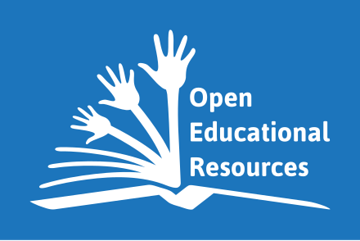By Leyli Izadpanah, Staff Writer

Students shouldn’t have to be surprised by unwarranted textbook fines for classes they need to graduate. Students at Pellissippi State Community College already pay for tuition and other expenses such as rent, groceries, and bills; unnecessary textbook fines only further exacerbate their financial strain. This matter is even more important for the many students who rely on financial aid, as they may not be equipped to pay for the required textbooks, an extra cost that can easily cause them to be left behind in their classes.
Students are oftentimes unaware of these fines until after they’ve already signed up for classes, making it difficult for them to drop/change classes in time. However, there is a way to ensure access to free resources for all classes, using free learning material called Open Educational Resources, or OER for short. In classes that incorporate OER, the instructors have ensured that all resources necessary for class are free to students, that way there is no risk of students not having access to the materials.
Professor of English, Anna Cantrell Matsen, teaches many OER English courses including Comp 1 and 2 and Intro to Fiction; she hopes to make students aware that these types of classes exist to make things easier for them.
“I want to make sure that there’s some greater awareness among students about what OER is and why it is something that can be financially and practically very beneficial to students,” she says.
There are many different types of OER classes offered at Pellissippi State, the main examples being in Math, Science, or English classes. Students should be aware that when signing up for classes, they need to ask their academic advisors directly for OER classes; because advisors aren’t allowed to ask students whether or not they have financial need, it’s extremely vital that students speak up for themselves. By clearly communicating this with their advisors, their academic costs can be greatly reduced.
In a recent interview, Professor Matsen pointed out that along with being beneficial to students with financial need, OER resources are extremely helpful to students requiring accommodations. For example, if a student requires an audiobook for a non-OER class, they would have to struggle to find it on their own and then purchase it themselves. Instead, as most OER textbooks usually come online with a free audiobook and in multiple formats (text, video, audio, websites), they are much more easily accessible to a wide variety of students. Overall, they cater to different needs and learning preferences while also being a more financially friendly option.
Matsen also pointed out that some classes may be fully OER, while others might offer partially OER resources.
“Full-on OER means that it’s something that either is out of copyright, or that the person who owns the copyright has basically given permission for anybody to use it,” she says, explaining the difference between the two types of OER. “And, therefore, students can access them without having to pay any kind of fee… [Regarding partially OER classes,] in a particular class that normally has two textbooks, an instructor may have replaced one of them with OER content, but not the other, which is still financially beneficial, so it just depends.”

Matsen is working with fellow professors Moira Connelly and Kate O’Meara on making a full OER-based English Composition 2 course for other professors to use if they so choose. For reference, the textbook most professors currently require for this class is a whopping $100 not generally covered by financial aid. They have been working on developing the course since last summer, and they are hoping to have it up and running by next semester. When implemented, this full OER class will allow instructors the freedom to be able to take the OER content and modify it to better align their teaching objectives, accommodate different learning styles, and update it easily without having to burden their students with unnecessary costs.
Matsen describes what developing the course material is like.
“We’re pulling in literature from all over the world for these assignments without having to have a paid-for textbook,” she says, “and that’s actually something that we’ll be potentially trying to get everyone to use in future semesters. Some instructors like their textbooks and that’s fine, but the idea is that instructors can use some or all of the course if they want to.”
OER-based learning also allows for much more flexible learning; instructors can modify material to what they see fit, instead of having to conform to a strict curriculum. Matsen describes her own experience as an OER instructor, stating that, “depending on the course, it allows the instructor more flexibility about what exactly they’re assigning…Sometimes it also empowers more student options for stories for a paper, or whatever the case may be.”
OER courses eliminate the need for expensive textbooks and resources, increase accessibility for a wide variety of students, and allow for a tailored learning experience by letting instructors modify material to meet the specific needs of their students. All students should keep these benefits in mind as they sign up for classes; bringing OER up to an advisor will help ensure that students have the chance to take advantage of these benefits. As Professor Matsen says, “Advocate for yourself when it comes to making life a little bit easier and a little bit less of a financial hassle, just by bringing it up.”






